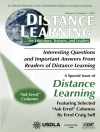‘Burke has challenged teachers everywhere to raise their standards and design classroom assessments that show evidence of understanding and performance on complex tasks. The expert examples in this book provide teachers with a complete road map so that assessment is truly at the heart of instruction.’
—Diane Ray, Assistant Director for Teacher Leader Development
Professional Association of Georgia Educators
Create assessments that meet state standards and target students′ learning needs!
For many years, assessment was relegated to a secondary role in the educational process. But with the increased emphasis on high-stakes testing, effective assessment has emerged as one of the major factors in raising student achievement.
In this latest edition of her bestseller, renowned educator Kay Burke provides a wide range of updated, easy-to-implement alternative assessments that address today′s accountability requirements and focus on improving learning. Designed for use across all content areas, these formative assessments are rooted in the language of state standards and emphasize differentiating instruction to meet students′ individual learning needs. Revised throughout with updated research, this new edition helps K–12 teachers:
- Build Response to Intervention checklists for struggling students
- Develop unit plans using differentiated learning and assessment strategies
- Create portfolios that emphasize metacognition
- Design performance tasks that motivate and engage students
- Construct rubrics that describe indicators of quality work
- Create tests that focus on higher-order thinking skills
Offering numerous applications and examples, How to Assess Authentic Learning guides teachers in developing the assessment tools needed to help all students meet or exceed mandated academic standards.
Зміст
Acknowledgments
About the Author
Introduction
Standardized Tests and Classroom Assessments
Assessment Literacy
Accountability
Grading
Traditional Cognitive Science
Assessment and Evaluation
Definitions of Performance Assessment
Portfolios
Balanced Assessment
And Now…the Tools!
1. Student Learning Standards
What Are Learning Standards and Benchmarks?
What Is the Standards Movement?
How Did the Standards Movement Begin?
What Are Preformance Standards?
Why Do We Need Standards?
How Can We Use Standards?
Final Thoughts
2. Differentiated Learning
What Is Differentiated Learning?
What Are the Multiple Intelligences?
Why Should We Use Differentiation?
How Should We Use the Multiple intelligences?
Final Thoughts
3. Student Portfolios
What is a Portfolio?
Why Should We Use Portfolios?
How Can We Implement Portfolios?
Final Thoughts
4. Performance Tasks and Rubrics
What Are Performance Tasks?
Why Should We Use Performance Tasks?
How Should We Create Performance Tasks?
How Should We Assess Performance Tasks?
Final Thoughts
5. Checklists and Rubrics
What Are Checklists?
Why Should We Use Checklists?
How Should We Use Checklists?
What Are Rubrics?
How Should We Use Rubrics?
How Can Rubrics Be Used?
What is the Checklist-Rubrics Connection?
How Do We Create Assessments?
Final Thoughts
6. Metacognition
What Is Metacognitive Reflection?
Why Should We Use Megacognitive Reflection?
How Should We Use Megacognitive Reflection?
What Are Learning Logs and Journals?
Why Should We Use Learning Logs and Journals?
How Should We Use Learning Logs and Journals?
How Should We Assess Learning Logs and Journals??
Finals Thoughts
7. Graphic Organizers
What Are Graphic Organizers?
Why Should We Use Graphic Organizers?
How Should Graphic Organizers Be Used For Assessment?
Final Thoughts
8. Teacher-Made Tests
What Are Teacher-Made Tests?
Why Do We Need Teacher-Made Tests?
How Can We Design Better Teacher-Made Tests?
Final Thoughts
9. Interviews and Conferences
What Are Interviews and Conferences?
Why Should We Use Interviews and Conferences?
How Should We Assess Interviews and Conferences?
Final Thoughts
Conclusion
Resources: Performance Task Units
Resource A: Investigating Rocks, Minerals, and Soils in Third-Grade Science
Resource B: A Middle School Economics Performance Task
Resource C: Using Algebra to Plan a Garden Party
Resource D: Foreign Language Performance Task for Middle and High School
Resource E: Thinking About Themes Through texts and Tasks in Literature, Grades 9-12
References
Index
Про автора
Kay Burke has served as an award-winning classroom teacher and a school administrator, university instructor, and international professional developer. She works with Kay Burke & Associates, LLC, to provide workshops for teachers and administrators in standards-based learning, performance assessment, classroom management, mentoring, and portfolio development. For the past 18 years, Burke has presented at state and national conferences such as ASCD, NSDC, NAESP, NASSP, NMSA, and IRA as well as international conferences in Canada and Australia. She is the author of 10 professional development books and coauthor of a college textbook on assessment. Corwin Press published Burke′s best-selling From Standards to Rubrics in Six Steps: Tools for Assessing Student Learning, K–8 (2006), a 2007 finalist for the Distinguished Achievement Award for Excellence in Educational Publishing presented by the Association of Educational Publishers. Other books published by Corwin Press include How to Assess Authentic Learning, Fourth Edition (2005) and What to Do With the Kid Who: Developing Cooperation, Self-Discipline and Responsibility in the Classroom (Third Edition).












